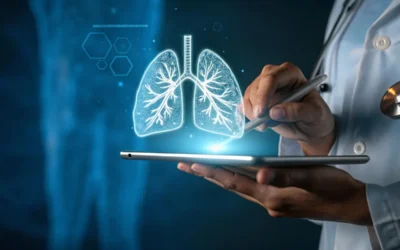A new wave of rare cancer diagnoses is emerging among younger adults, raising serious questions about modern health risks and early detection protocols. A recent Fox News report highlighted this disturbing trend, revealing that Millennials and Generation X are being diagnosed with rare and aggressive cancers at unprecedented rates.
These cancers, once predominantly associated with older populations, are now affecting adults as young as 30, often without warning and typically without established risk factors. The rise is both sudden and significant—some cancer types have more than doubled or even tripled in incidence over the past two decades.
Table of Contents
The Alarming Numbers Behind the Trend
Between 2000 and 2020, rare cancers in people aged 30 to 49 have risen dramatically. Among the most notable:
- Appendix cancer: up 250%
- Small bowel cancer: up 150%
- Cholangiocarcinoma (bile duct cancer): up 200%
- Thymus cancer: up 130%
- Vulvar cancer (in women): up nearly 80%
These are not cancers commonly discussed in public health messaging, nor are they part of routine screening programs for younger populations. That makes early diagnosis rare—and often, too late.
Why Is This Happening?
There’s no single explanation for the surge, but experts point to a complex mix of environmental exposures, lifestyle changes, biological shifts, and diagnostic gaps.
One factor may be long-term exposure to chemicals and toxins that affect gene expression or immune function. From processed foods and endocrine disruptors to sedentary lifestyles and disrupted sleep cycles, younger generations have lived most of their lives under different environmental and behavioral norms than previous generations. These cumulative exposures may be triggering early-onset cancers in previously unaffected organs.
Diet is also under scrutiny. High consumption of ultra-processed foods and low-fiber diets have been linked to gastrointestinal inflammation and microbiome imbalance—conditions that can increase cancer risk over time. Some researchers also note that increasing obesity and metabolic disorders, even among the young, may accelerate the development of certain cancers.
Crucially, the healthcare system’s diagnostic model remains heavily oriented toward older adults. Most standard cancer screenings—like colonoscopies, mammograms, and PSA tests—are not recommended until age 50 or beyond. For those under 50, cancers can go undetected for months or years, especially when symptoms are vague or misattributed to stress, diet, or other common ailments.
Symptoms That Shouldn’t Be Ignored
The challenge with many of these rare cancers is that their symptoms often mimic far more common and less serious conditions. However, the following signs—especially if persistent or unexplained—should prompt further medical evaluation:
- Ongoing fatigue or weakness
- Unexplained weight loss
- Abdominal discomfort, bloating, or pain
- Changes in bowel habits
- Blood in stool or urine
- Persistent coughing or chest pain
- Abnormal vaginal or vulvar symptoms (for women)
Because these symptoms are easy to dismiss, especially among younger individuals who don’t consider themselves at risk for cancer, diagnoses often occur only when the disease is already advanced.
Diagnostic Blind Spots
Another important takeaway from the report is the need to rethink how and when doctors investigate persistent symptoms. For patients under 50, a diagnosis of cancer is often not top of mind—for them or their clinicians. Many younger adults are sent home with suggestions to manage stress, improve their diet, or wait it out. But in many of the case studies shared in the Fox News piece, the initial symptoms that were downplayed later turned out to be signs of serious disease.
This diagnostic delay can be fatal. Cancers like cholangiocarcinoma and appendix tumors are aggressive and often require surgical removal, chemotherapy, or both. Early-stage detection significantly improves outcomes, but that window is easily missed if symptoms are brushed off due to age bias.
A Call for Broader Awareness
The implications of this trend are serious. If rare cancers are rising among Millennials and Gen X, then public health messaging, clinical screening guidelines, and diagnostic practices need to evolve. The idea that cancer is a disease of old age no longer holds. Younger generations must become more vigilant, and physicians must develop a higher index of suspicion, especially when symptoms don’t respond to conventional treatment.
This isn’t just about numbers—it’s about lives. Millennials are now in their 30s and 40s. Generation X spans from late 40s to mid-50s. These are peak years for career, family, and contribution to society. A cancer diagnosis in this phase can be devastating not just physically, but emotionally and financially as well.
Conclusion
The rise of rare cancers in younger adults is a warning that can’t be ignored. It underscores the need for earlier investigation of symptoms, expanded awareness of non-traditional cancers, and more research into the root causes of this troubling shift. While many of these cancers remain relatively uncommon overall, their sudden increase in incidence makes them impossible to dismiss as statistical anomalies.
Patients and providers alike must begin to recognize that cancer risk is no longer just a matter of age. With improved vigilance and timely diagnostic action, lives can be saved—and an outdated narrative about who gets cancer may finally be rewritten.
Source:
Fox News. Rare cancer diagnoses surge dramatically among Millennials, Gen X: ‘Alarming to everyone’. Read the article here





0 Comments